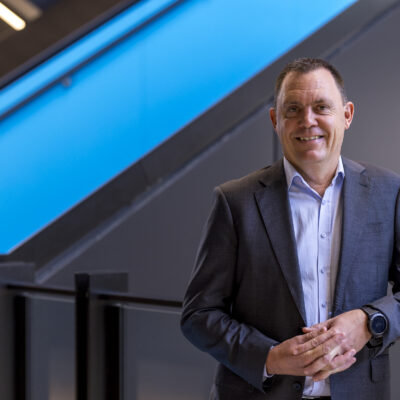How to make the tools of technology work for you
In this age of new technologies, distraction and endless choice, we need to be disciplined…
In this age of new technologies, distraction and endless choice, we need to be disciplined about how we use our time and place our attention, says Asantha Wijeyeratne.
Technology is supposed to make life easier for SME owners, but the promise of more free time and bigger profits can quickly be swamped by the bewildering choice of solutions and data and the temptation to allow email to cut into weekends. But there is a secret to taking back your life and putting technology to work for you, and it involves distinguishing the ‘noise’ from what is meaningful. In this age of distraction and endless choice, we need to be disciplined about how we use our time and place our attention.
1. Decide on what’s important
If you feel confused, no wonder – there’s never been more noise in our environment and culture. There is so much information at our fingertips that we get distracted by details, but it’s the big picture that is most important for business owners, and it is made up by a handful of key pieces of information. You will be able to determine what those are, and the types of technology needed for those outcomes, if you understand your bottom-line purpose.
For example, Sir Peter Blake’s simple question was, “Will this make the boat go faster?” Southwest Airlines founder Herb Kelleher always asked, “Will this make us THE low-fare airline?” Your bottom-line question may be similar to mine: “Will this make our customer’s lives easier?”
Take an automated telephone system. Call volumes are high and you need more efficiency. But what about your customers, who detest this automation? Consider offering customers the choice to speak to a human if they prefer.
2. Only pay attention to headline data
If you own a café, it isn’t necessary to know how many sausage rolls were sold on a given day. I have trained myself not to look at my various applications (including email) every five minutes, or even every hour.
You will be able to differentiate the noise from the big picture by deciding what data is essential to your business and your role in it. These are your headline numbers, and they may include total revenue for the day rather than how many sausage rolls were sold. Key information sources might be Xero’s dashboard and Kounta (if you’re in retail).
3. Only investigate further when something changes
If the headline numbers are not as expected – say for total revenues were down yesterday, and that wasn’t the projection – you will need to find out why. Knowing what’s important and what isn’t spares you from going down rabbit holes. The number of sausage rolls you sold only becomes important when you need to improve your margins.
4. Aim to work with technology that has an open (public) API
When deciding what technology and platforms will best serve your business, make sure the software is a publicly available application programming interface (API) that can communicate and interact with other applications. Open API is essential if you don’t want to be swamped with 16 different applications.
For example, if you work in the agricultural sector you’ll know farmers need to pay attention to a number of deliverables, including herd productivity and the weather. Fonterra and LIC have an aggregate technology pilot that brings this information onto one dashboard. If a farmer is using solutions that don’t have an open API, they will be unable to communicate with the new dashboard.
5. Avoid magpie syndrome
Instead of haring off whenever a shiny new solution pops up, build yourself a network of three or four people you trust. Talking to trusted advisors helps you hear yourself think and keeps you centred on what’s important.
It will also help if you constantly revert to your shorthand purpose question. If I ask myself, “Will this make the customer’s life easier?” and the answer is no, I will have saved a lot of time and money.
6. Trust your gut, and listen to your customers
You will never have complete information, with all the answers and all the solutions, so don’t be seduced by data and technology. Listen to your advisors, keep your ear to the ground, trust your instincts and listen to your customers.
We will always be social animals, and that’s what gives me hope.
Asantha Wijeyeratne (QSM) is an entrepreneur, multiple business owner and the founder of Simply Payroll, New Zealand’s only full-service payroll app for iOs and Android.






